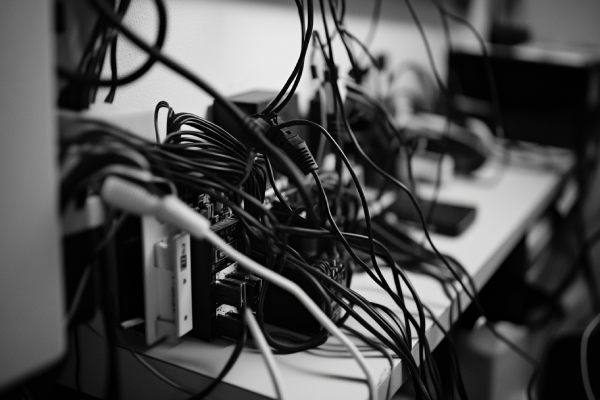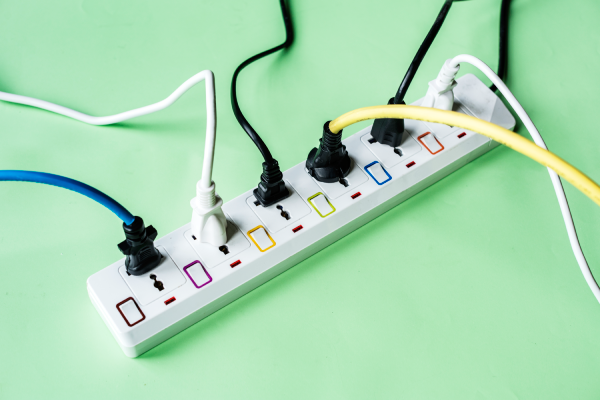
Have you ever had your lights flicker, or your power go out when using too many appliances? You may be risking an overloaded electrical circuit—a hidden hazard in many Tweed Heads homes. Electrical overloading can cause significant damage, including electrical shocks, appliance failure, and even house fires.
Many homeowners don’t realise how simple changes in managing their electrical load can prevent these dangers. Understanding electrical load and avoiding overloading circuits are crucial steps to protect your home from these threats.
Create a home where you can run all your appliances without worrying about tripped breakers or electrical hazards by taking a few preventive steps.
Read on to learn how to manage your home’s electrical load and safeguard your Tweed Heads home. Don’t wait until it’s too late—protect your appliances and your family today!
Understanding Electrical Load
Before we discuss tips for avoiding circuit overloads, it’s essential to understand electrical load. Electrical load refers to the total amount of electrical power consumed by devices and appliances connected to a circuit.
Every appliance in your home draws a certain amount of electricity, which adds to the overall load on your circuits. When the demand for power exceeds this capacity, the circuit becomes overloaded, causing your circuit breaker to trip or, in worst cases, pose a fire hazard.

Signs of an Overloaded Circuit
How do you know if your home’s circuits are overloaded? Here are some common signs:
Frequent tripping of circuit breakers
This is one of the most obvious signs that a circuit is overloaded. If your breaker trips repeatedly, it’s time to inspect the load on that circuit.
Dimming or flickering lights
When other appliances turn on, flickering lights could mean your circuit is struggling to provide sufficient power.
Warm or discolored outlets
If your outlets feel warm to the touch or show signs of discolouration, you may have a dangerously overloaded circuit.
Buzzing sounds from switches or outlets
Buzzing noises are another indication that your circuit is under too much strain. This sound often indicates that your circuit is under too much strain, and the electrical current may not be flowing smoothly.
How to Avoid Overloading Circuits in Your Tweed Heads Home
Now that you understand the basics, let’s look at practical ways to prevent overloading your circuits.
Distribute Appliances Across Circuits
You can prevent circuit overload by distributing your electrical appliances evenly across multiple circuits. Don’t plug all your high-energy appliances, like air conditioners, ovens, and dryers, into the same circuit.
Spread out all devices to reduce the burden on individual circuits. For example, make sure that devices such as refrigerators and washing machines have their dedicated circuits.
Use Properly Rated Extension Cords
If you rely on extension cords, make sure they are rated for the devices you’re connecting. Using underrated extension cords can easily lead to overloads. Avoid chaining extension cords together, as this can increase the risk of overheating and create fire hazards.
Unplug Devices When Not in Use
Standby power is a silent energy consumer—many devices still draw electricity when not in use. By unplugging appliances like TVs, computers, and kitchen devices when they are not in use, you’ll lower the total load on your circuits. This small action can also save you on energy costs.
Upgrade Old Wiring and Electrical Panels
Many older homes in Tweed Heads may have outdated electrical systems that aren’t equipped to handle modern electrical demands. If your home frequently experiences tripped breakers or if your wiring is decades old, it’s time to consider an upgrade.
New wiring systems are more energy-efficient and safer. Similarly, upgrading your electrical panel can ensure your home can handle increased energy loads without risking overloads.
Install Dedicated Circuits for Large Appliances
High-energy appliances like air conditioners, electric stoves, and water heaters require a lot of power. Installing dedicated circuits for these large appliances can prevent them from overloading circuits shared with smaller devices.
Invest in Energy-Efficient Appliances
Energy-efficient appliances are eco-friendly and help reduce the total load on your electrical system. Replacing old, energy-draining devices with more modern, energy-efficient ones will lower the overall demand on your circuits, preventing potential overloads.

When to Call a Professional Electrician
Sometimes, circuit overloads aren’t easy to diagnose or fix without expert help. If you’re uncertain about the capacity of your home’s circuits or notice persistent issues, it’s time to call a licensed electrician. An electrician can assess your system, identify problem areas, and recommend upgrades to protect your home..
If you live in an older home in Tweed Heads, it’s essential to have a professional inspection. With growing energy demands, many older systems simply can’t keep up without modifications.
Keep Your Tweed Heads Home Safe
Electrical overloads pose a severe risk to your home and family, but they’re easy to avoid with the proper knowledge and preventive measures. By spreading out your appliances, upgrading outdated systems, and unplugging devices when not in use, you can prevent overloads and maintain a safe, efficient electrical system in your Tweed Heads home.
Don’t wait for a problem to arise—take action today! If you’re unsure about your home’s electrical system, contact a professional electrician in Tweed Heads to perform an inspection and ensure your home is protected from overload hazards.
